|
“Following the latest advice from the Government, Light House has taken the difficult decision to suspend our programme indefinitely, with our last screenings taking place today, Thursday 19th March 2020.” This is the message posted on the website of my local independent cinema. A similar message, in hundreds of languages, probably appeared in cinemas all over the world as the lights went out throughout February and March. The Light House is my favourite place to watch films. It’s a multipurpose building with a small gallery for local artists to display their work, a friendly café/restaurant and a courtyard where bands sometimes play in the evenings. They have two screens: a large 240-seater and a 67-seater Studio Cinema. It’s in that smaller screen you’ll usually find me, enjoying a mid-week matinee with a discounted coffee. It’s basically a large room, with no rake, a small screen but a full digital sound system. I sit right at the front, right in the middle and usually there are only a few other patrons dotted around. It’s in the Studio Cinema that I watch those hard to see films that no one else will be screening, like Hope Dickson Leach’s bleak ‘The Levelling’ or Alice Rohrwacher’s wonderfully strange ‘Happy as Lazzaro’. But I’ll head there to see the Hollywood blockbusters too – it was in that little screen that I saw ‘Star Wars: The Rise of Skywalker’, Rian Johnson’s ‘Knives Out’ and it was the perfect setting to take my teenage, horror-obsessed, son to see John Krasinski’s ‘A Quiet Place’. Apart from the occasional visit with my son or my partner, I’m at that stage now in my cinema going evolution where pottering off to see a film by myself is natural. It wasn’t always that way, of course. When I was young, I went with family: to watch Hollywood films like the re-release of Disney’s ‘The Jungle Book’ or Spielberg’s ‘E.T.’ and Robert Zemeckis’ ‘Back to the Future’ at the ABC Cinema which was so big it had an upstairs balcony. Occasionally we’d go to see a Bollywood film which were so long there would be an interval and we’d pop out to buy a samosa. Then came the teenage years, a group of friends and the summer of 1989. Those who were there remember it fondly because it seemed like every week there were a couple of must-see films you just had to see! ‘Indiana Jones and the Last Crusade’, ‘Lethal Weapon 2’, ‘See No Evil, Hear No Evil’ and, of course, Tim Burton’s ‘Batman’ – we were teenage boys, after all. Maybe the anticipation of ‘Avengers: Infinity War’ and ‘Avengers: Endgame’ comes close to capturing the frenzied excitement that surrounded ‘Batman’ that summer. We were so eager to see it that we even contemplated queuing at 6am to make sure we got a ticket – that was back in the day when you had to stand outside to make sure you got in. In the end we opted to queue for four hours. Then a multiplex, which promised no adverts (that didn’t last long) and no queues (that was only partially true), opened a 30 mins bus ride away. That became our favourite haunt every Saturday night and we watched everything: our minds were blown by Oliver Stone’s ‘JFK’ and Spike Lee’s ‘Malcolm X’, we sat in awe at James Cameron’s ‘Terminator 2: Judgement Day’ and we debated for hours whether the events in Paul Vehoeven’s Schwarzenegger starring ‘Total Recall’ had actually happened. Then another multiplex opened, Cineworld, much closer to home and it was there that I saw ‘Jurassic Park’, ‘The Shawshank Redemption’, ‘Forrest Gump’ ‘Toy Story’ and ‘The Matrix’ for the first time. After that I moved to Newcastle-upon-Tyne to study filmmaking and the Tyneside Cinema became a regular haunt. It was there that we saw the films of exciting new directors like Quentin Tarantino with ‘Reservoir Dogs’, Peter Jackson with ‘Bad Taste’ and Danny Boyle with ‘Trainspotting’. It was there that I started to watch European films with the release of Jean-Jacques Beineix’s director’s cut of ‘Betty Blue’. And it was also there that I contemplated walking out of a film for the first and only time: those of you who have seen Louis Malle’s ‘Damage’ will know how excruciatingly painful it is. Then, post-university, there was time spent frequenting the Electric Cinema in Birmingham where you could get a slice of cake to take in with you and after that the Genesis Cinema in the east end of London where Tuesdays were discount days and invariably sold out – especially when you wanted to see something like Sam Rami’s ‘Spider-man’ or Spielberg’s ‘Minority Report’. After that I moved to France and the local Katorza cinema became a cinematic lifeline because it showed films in version originale (VO) instead of the dubbed versions (VF) you’d find at the local multiplex (although returning now I’m surprised to see that the French obsession with dubbing films has waned somewhat as VO screenings are popular in the multiplexes). It was in Screen 1 that I saw out the Lord of the Rings trilogy, the middle films of the Harry Potter franchise and the beginning of the MCU. I’d drop my son off at school, work in the mornings and then head there for an afternoon screening before returning to pick him up. That’s how I saw Mira Nair’s ‘The Namesake’ and Paul Thomas Anderson’s ‘There Will be Blood’. I also sat through David Lynch’s ‘Inland Empire’ and struggled through ‘Le voyage de Chihiro’ (Spirited Away) in Japanese with French subtitles and Almodovar’s ‘Volver’, Spanish with French subtitles. French cinema, funded by the government, was very domestic because there wasn’t a thriving television drama sector as there is now but Guillaume Canet’s ‘Ne le dis a personne’ and Jean-Pierre Jeunet’s ‘Un long dimanche de fiancailles’ were captivating. My first experience of ‘The Incredibles’, ‘Finding Nemo’ and ‘Cars’ was to see them in French with my son at the Gaumont. And there was also Le Cinématographe, the ultimate art house cinema, where I took by son for his first screening and post-show discussion with a writer/director: Michel Ocelot with ‘Azure & Azmar’ and introduced him to the genius of Harold Lloyd in ‘Monte là-dessus!’ (Safety Last). Then it was back to England to study for an MA at Goldsmith’s College and ‘Avatar’ at the IMAX in 3D (not a great film and nor was I impressed with the 3D – but boy, oh boy you had to be inspired by Cameron’s imagination!) Ever since then I’ve lived all over the country, dipping in and out of cinemas wherever I end up: Home in Manchester, the Watershed and Cube in Bristol and any number of cinema’s dotted around London, Birmingham and Cardiff. I always hunt out those pleasant oddities such as Ali Abbasi’s ‘Gräns’ (about a woman who discovers she’s half troll) and Jonathan Grazer’s ‘Under the Skin’ (about a woman who’s really a predatory alien) but I also enjoy a good Hollywood spectacle. Which brings us to Kevin Feige and his MCU. Of course some in the audacious Infinity Saga were underwhelming – ‘Thor 2: The Dark World’ – and some were just okay – ‘Ant-Man’ – but others were great films: ‘Ironman’, ‘Captain America: Winter Soldier’, ‘Captain America: Civil War’, ‘The Guardians of the Galaxy: Vol 1 & 2’, ‘Black Panther’ and ‘Thor: Ragnarok’. And if you’ve been going to the cinema as long as I have, if you’ve watched as many films and their sequels as I have and if you’ve been disappointed at the unfulfilled promise of an epic finale as I have, then you’ll know that what Feige, the Russo brothers and the writers, Christopher Markus and Stephen McFeely, achieved with ‘Avengers: Infinity War’ and ‘Avenger: Endgame’ is unprecedented. I saw ‘Avengers: Endgame’ seven times at the cinema, in six different cities, in two different countries and in virtually every format it was released in, and in every screening people laughed, people cheered and at the end, when Robert Downey Jr’s Ironman snaps his fingers causing Thanos and his army to ash away and then collapses, all you could hear were the people who were crying.
That is a story told. And that’s cinema. As was the poignancy in Hirokazu Koreeda’s ‘Shoplifters’, the heartache in Pawel Pawlikowski’s ‘Cold War’, the corrupted innocence in Taika Waititi’s ‘Jojo Rabbit’, the pain and determination in Greta Gerwig’s ‘Little Women’ and, of course, the social pestilence in Bong Joon Ho’s ‘Parasite’. So, when the cinemas open their doors again and the lights go down again, this time at the beginning of the screening, I’ll be right there, just as I have always been, to be captivated by that magic lantern show.
1 Comment
|
ScriptPlayerWriter, reader, pontificator. Archives
May 2023
Categories |
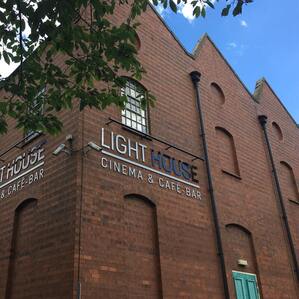
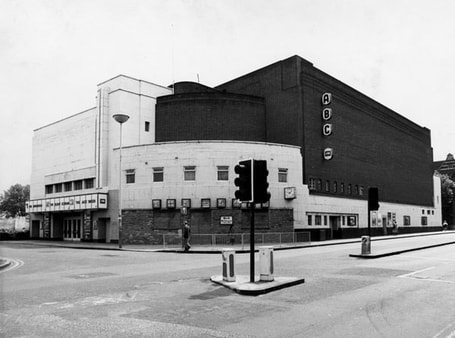
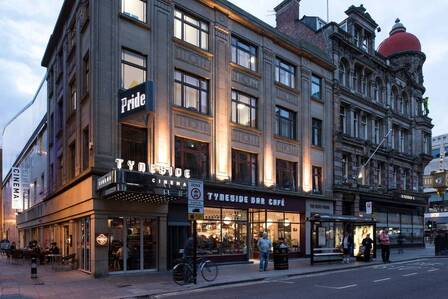
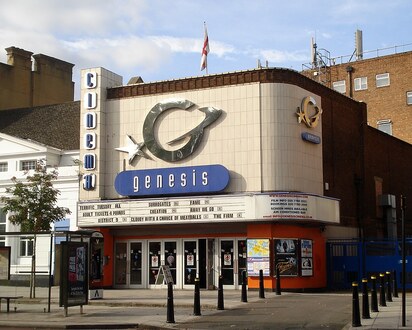
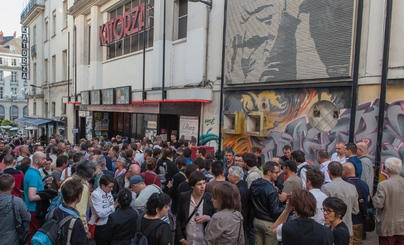
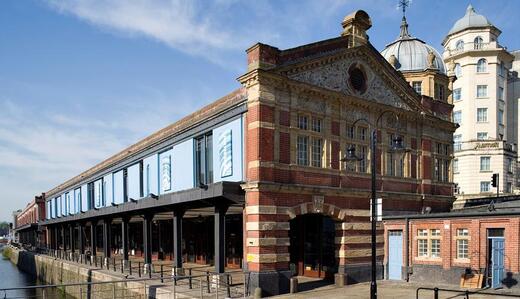
 RSS Feed
RSS Feed